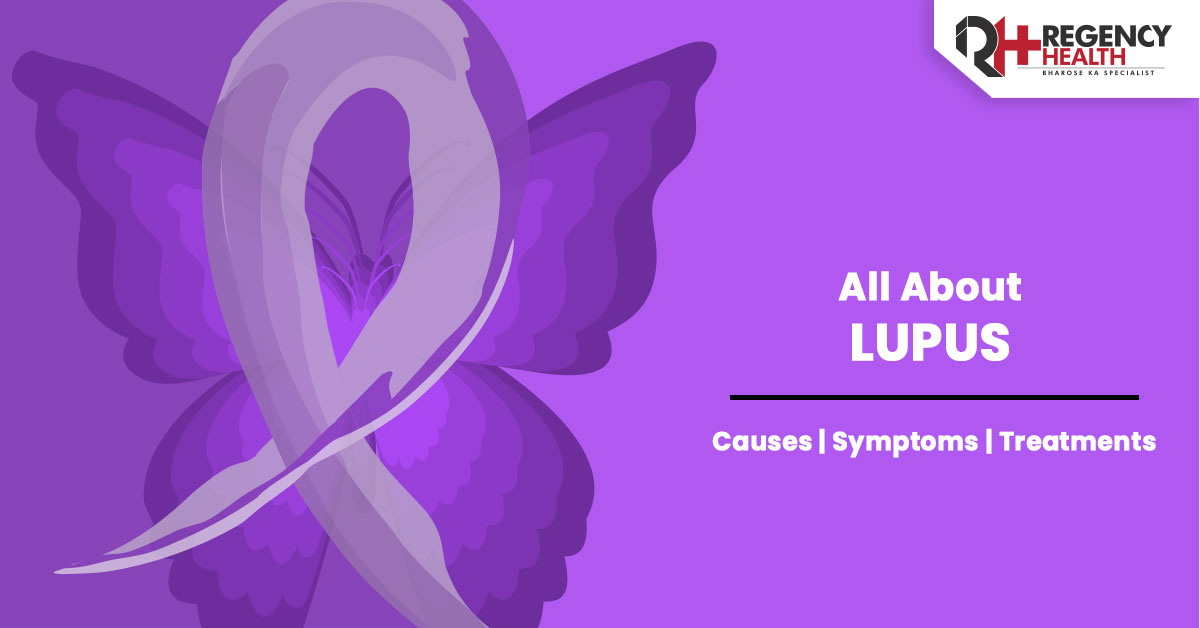Lupus: Symptoms, Causes, Types & Treatments

What is Lupus?
Lupus is an autoimmune disease, which means your body attacks itself, and it’s not clear why. Lupus is a chronic disease that causes inflammation in one or more of your body’s systems. It can affect your joints, skin, kidneys, heart, lungs and brain. Lupus symptoms vary from person to person, but common symptoms include fatigue, joint pain and swelling, fevers and headaches. In some cases, it can also cause inflammation of the heart or lungs. While there is no cure for lupus disease yet, there are treatments available that can help reduce symptoms and slow down their progression.
What are the different types of lupus?
There are two main types of lupus: discoid lupus erythematosus (DLE), which causes skin lesions that look like sunburned patches on your face or other parts of your body, and systemic lupus erythematosus (SLE), which causes widespread inflammation throughout your body. The most common type is systemic lupus erythematosus (SLE), but there are other types. SLE causes inflammation throughout the whole body.
There is no cure for lupus disease yet. But there are treatments available that can help reduce symptoms so you can live a normal life with this condition. You might have heard people refer to lupus as a “masked” disease because it can affect many organs and looks different in each person. That’s why it’s important to see your doctor if you have symptoms that could be related to lupus, even if they don’t seem serious at first. Lupus is a disease that can be difficult to diagnose and treat. Here’s what you need to know:
What causes lupus?
The exact cause of lupus isn’t known yet, but doctors think that genes play a role in developing the condition. It’s more common in women than men and tends to run in families.
Lupus is a chronic, autoimmune condition that affects the body’s connective tissues and organs. It can cause inflammation in various parts of the body and cause damage to organs such as the kidneys, heart, lungs, or brain.
Lupus causes include genetics, environment, and hormones. Lupus can also be triggered by infections or certain medications.
What are the symptoms of lupus?
Symptoms of Lupus vary from person to person and can include joint pain, skin rashes (such as a butterfly-shaped rash on your cheeks), hair loss, mouth ulcers, fever, chest pain, swelling in your limbs or fingers/toes (called pitting edema), muscle weakness/pain/cramps/painful joints (especially in your hands), headaches (including migraines), depression or anxiety (because of the way lupus affects your body’s ability to fight off infections), fatigue (because of how much energy it takes for your body to fight off lupus), and numbness/tingling in your fingers/toes/.
Lupus treatment
You have a lot of options for lupus treatment, it may be possible to treat lupus without medications at all! Here are some of the most popular treatments:
Systemic lupus erythematosus (SLE) is a type of lupus that affects many parts of the body. It can lead to inflammation and damage to different organs. In general, SLE is treated with corticosteroids and immunosuppressants. That means medications that reduce inflammation and slow down the immune system so it doesn’t attack itself as aggressively anymore.
Nonsteroidal anti-inflammatory drugs (NSAIDs) can help with pain relief in people with mild cases of lupus who don’t have any other serious symptoms yet (like kidney failure or heart attack). NSAIDs include aspirin or ibuprofen; they’re available over the counter at any pharmacy or grocery store!
To get the best advice and lupus treatment, visit Regency Health. Doctors at Regency Health have years of experience and fully trained supporting staff to ensure you have the utmost care.
Request a call back


 Call-an-Ambulance
Call-an-Ambulance



